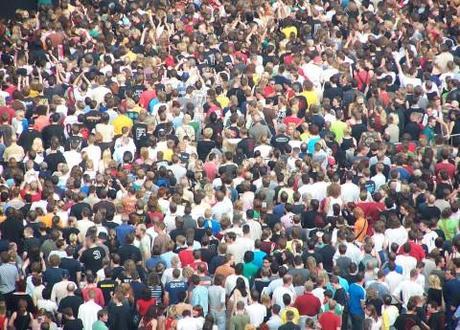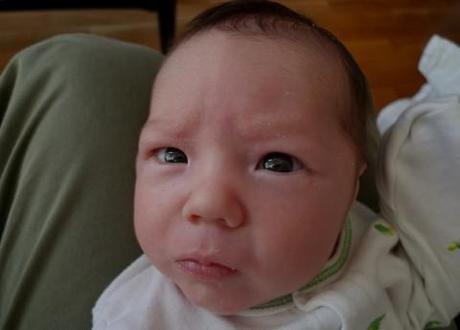
More people, more problems? Photo credit: JJ, http://www.flickr.com/photos/jjelenbaas/19388944/
The world’s population hit a stunning 7 billion this week, prompting an avalanche of fears that we’re procreating at a rate far faster than the earth can accommodate.
More people means more humans born into poverty and without access to basic needs, UN Secretary General Ban Ki Moon warned during a press conference on October 31 called to mark the symbolic Day of 7 Billion. More people means fewer resources, The Washington Post’s Juliet Eilperin reported last week, claiming that as the world’s population increases, so to do ecological “distortions” that see the needs of humans outstripping nature’s ability to provide for them. More people means a widening disparity between the haves and the have nots, commentators warn; it means increased stress on everything from food resources and environmental health to social justice and education; it means that world governments are facing a massive challenge in figuring out just how to make this inevitable development sustainable.
Oh, look: Babies!
That’s right – amid grim tales of children born into impossible poverty, of women stripped of their reproductive rights, and what could happen as the world population approaches its next milestone, 9 billion by 2043, world media found an upside: Baby photos.
Is overpopulation a death sentence? Maybe not, say critics and commentators.

Not the 7 billionth baby. Photo credit: Monsieur Paradis
The 7 billionth baby? The UN used the Day of 7 Billion to mark the birth of an anonymous 7 billionth baby, in an attempt to cast this mysterious child as a symbol of the future. Most countries, however, took the whole thing literally and 7 billionth babies have been popping up everywhere from South Bend, Indiana, where reporters at the South Bend Tribune acknowledged that they couldn’t be sure if little Jasmine Marie Timberlake, born at 7:33 a.m. on October 31, was really the 7 billionth baby or not, but interviewed her mother anyway; to Moscow, wherethree babies were vying for the milestone title; to Manila, where Danica May Camacho has reportedly received the official nod from the UN (she got a special cake); to Lucknow, India, where Nargis Yadav, a little girl born to a farming family, was crowned the 7 billionth baby in an effort to draw attention to the problem of female infanticide in India.
But has the world’s population really hit 7 billion? Maybe not. Determining population growth is, as Uri Friedman noted at Foreign Policy, “an incredibly messy business” – while some developing nations are getting better at tracking census data, many haven’t conducted censuses in decades; other countries, like China with its controversial and not totally effective one-child policy, just lie. Even the UN, which promoted October 31 as the Day of 7 Billion in an effort to draw attention to population concerns, acknowledged that there’s a significant margin of error in determining when exactly the population will hit or already has hit 7 billion, the BBC reported. The US Census Bureau puts the population reaching the 7 billion mark in April of 2012 and still other organizations have the date as late as July of 2014. So, Friedman explained, “the U.N. estimate could be off this year by plus or minus 56 million, if one assumes an error of 2 percent in populous countries like China, India, and Indonesia. If one assumes a 1 percent error on a global level, the world could reach the 7-billion mark six months earlier or later than today…. In other words, if we really want to cover our bases, we may want to celebrate the 7 billion milestone again next year.”

